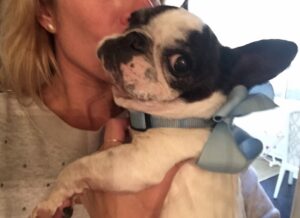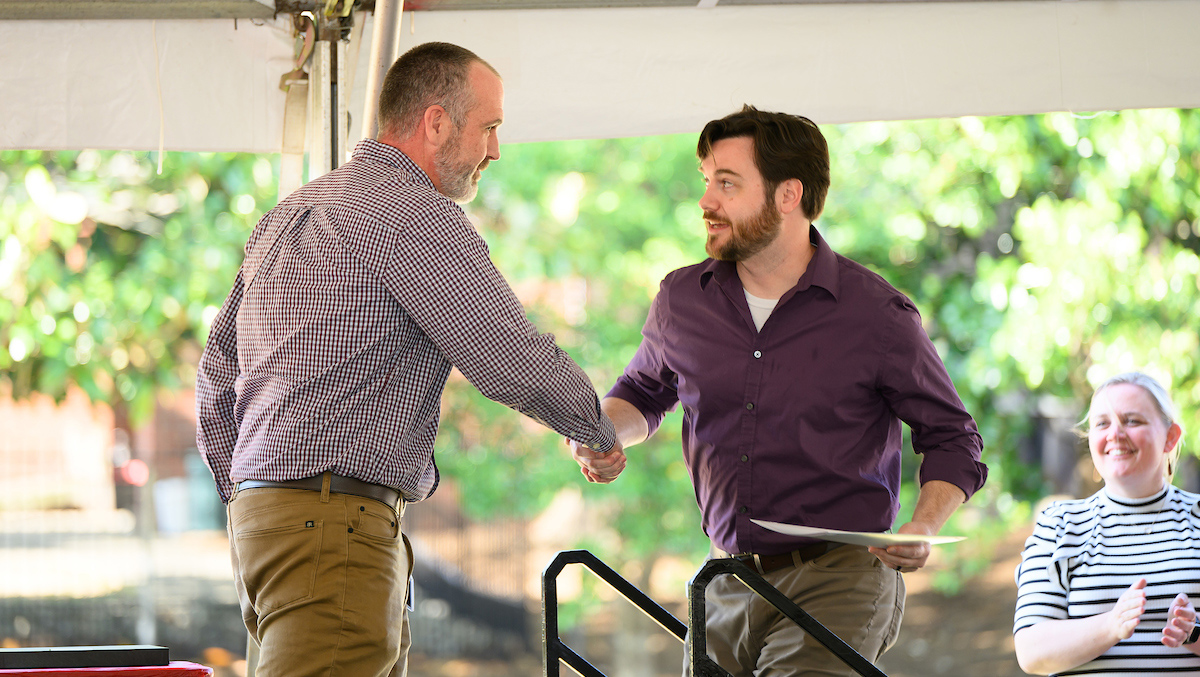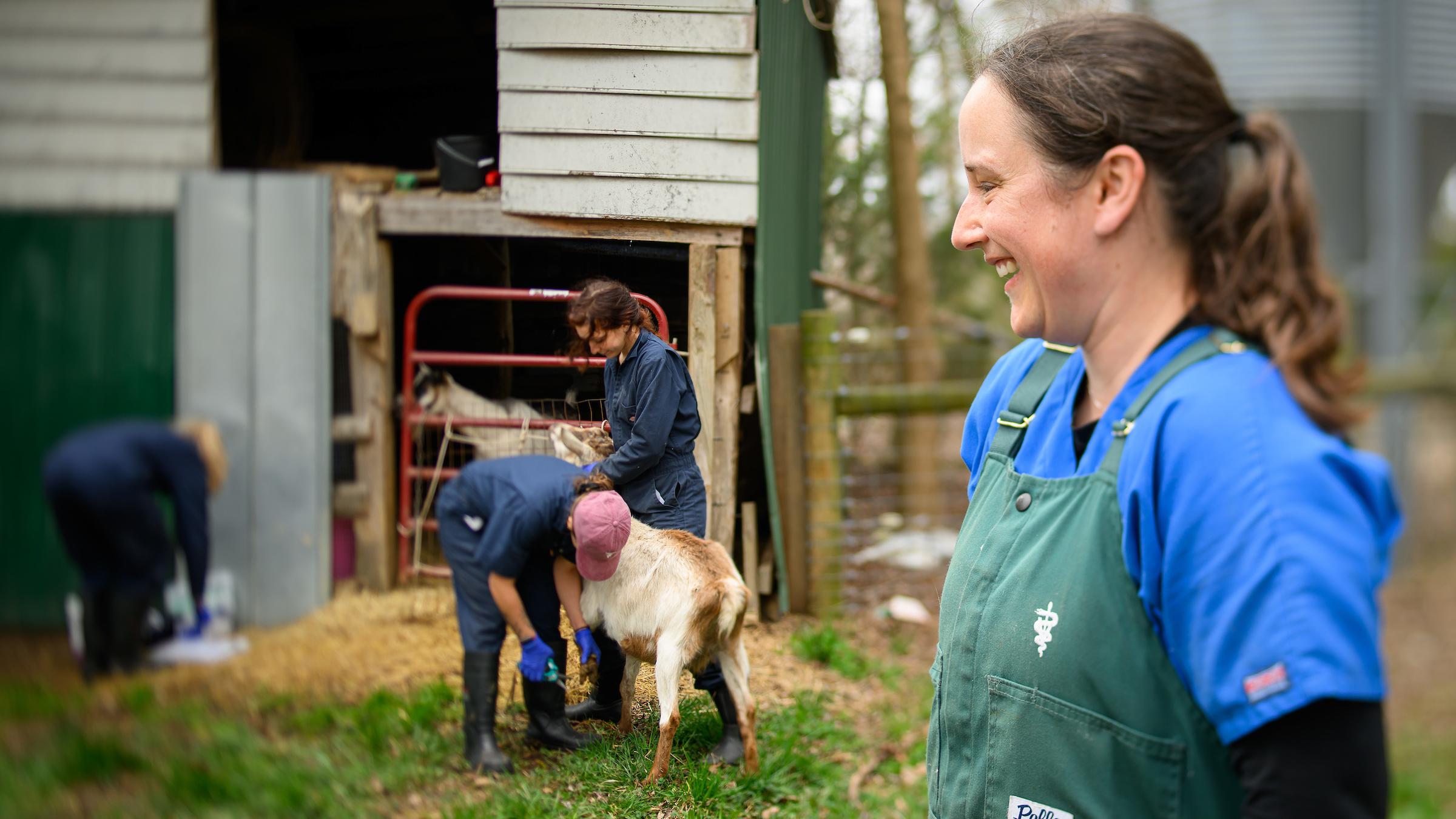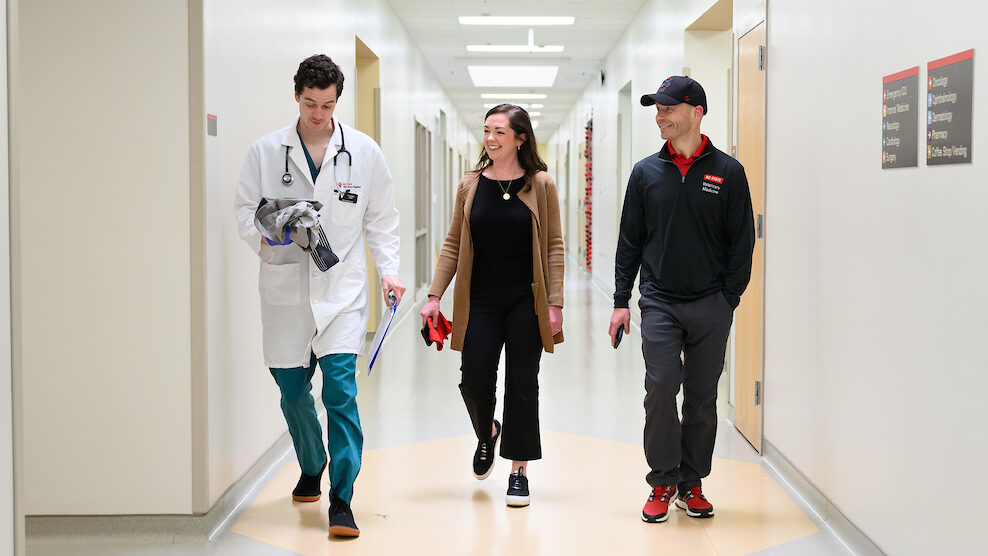A Fund Supporting Frenchies — and Many More

The first French bulldog that Joel Killion owned was a female named Baby J, and he quickly bonded with the playful and affectionate little dog.
He also became sympathetic with their plight; Killion learned that the breed is often beset with chronic medical problems.
Killion first took Baby J to the NC State Veterinary Hospital in 2015, and over the years she was seen multiple times for a variety of issues, including urinary, neurological, mobility, eye and heart problems, many of which were congenital.
During Baby J’s treatment over two years, Killion and his partner, Tate Garrison, appreciated the consistent professionalism and compassionate care from the staff and clinicians at NC State.
Killion splits his time between Raleigh and New York City, working as an investor in small- and medium-sized companies. “I’ve worked with many management teams,” he says, “and the NC State Veterinary Hospital is a top-notch organization. I’ve worked with an animal hospital in New York City that was excellent, but NC State raised the bar even higher.”
When Baby J passed away in 2017, Killion felt fortunate to have been able to provide her with the exceptional care she received at NC State. And then he had an idea. “I thought it would be great to help more people experience it,” Killion says.
That’s how the Baby J Fund was born at the NC State Veterinary Hospital. Killion and Garrison generously created and funded a special reserve for clients of the NC State Veterinary Hospital whose dogs are dealing with complex, chronic medical issues that require extended care and may not be able to afford that expense.
“We depend on NC State to determine which cases qualify,” Killion says. “We created the fund to help any breed of dog with chronic issues requiring major care.”

Since the Baby J Fund first became available to hospital clients, 23 different cases have received assistance with persistent, complex medical issues. The list includes a diverse mix of breeds and sizes. A recent case is Zeppelin, a 2-year-old French bulldog dealing with chronic diarrhea. Food intolerances are common in Frenchies, says clinical veterinarian Katie Tolbert, and though Zeppelin was treated with a variety of diet and antimicrobial trials, all were unsuccessful. describes what became an exercise in solving a medical mystery.
“Zeppelin’s condition became more severe and he began to develop vomiting, poor appetite, abdominal pain and severe muscle and body condition loss,” says Tolbert. “A review of his blood work and ultrasound findings led the clinicians to believe he might have inflammatory bowel disease, but he had no response to steroids and other immunomodulatory drugs. Finally, a small published retrospective study was found in which a rare condition known as ‘lipogranulomatous lymphagitis’ or LGL was described.”
LGL is an abnormal response to dietary fat where the body cannot process and transport dietary fat correctly, says Tolbert. After surgery to remove portions of the small and large intestine, Zeppelin improved dramatically. He was able to eat with 24 hours of surgery and to go home in a week. Still, he will require continuing medical care, including prescription drugs and a modified diet, for at least a year, precisely the kind of complex and protracted case the Baby J Fund was created to sustain.
At first, Killion and Garrison supported the Baby J Fund on their own with annual donations, but in more recent times it has benefited from the support of others, as well. To Killion, the fund exists for one simple reason.
“It’s about dogs and the people who love them,” he says.
~Steve Volstad/NC State Veterinary Medicine
The Baby J Fund The NC State College of Veterinary Medicine encourages donations to the Baby J Fund. Contributions may be made here.


